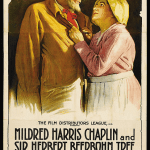
To: President Al Cibiades
RE: Need to sell “Bragdon Wood”
From: Acting President Currey (New Edgestow University)
Thank you for writing. . . the rebuilding of the University is going wonderfully well. While the loss of the NICE is unfortunate, the benefit of starting all the colleges from “scratch” has been an exciting opportunity to finally get to where the University needed to go. And after all, our colleagues at the NICE were a mixed lot, some not understanding the need for gradual change in an institution as delicate as a University. However, if the University had to be destroyed to save it from the forces of reaction and revolution, then I can only say with the sages: “It’s an ill wind. . .”
I understand that you are needing to make some hard decisions to move your school in the direction that the school must go to move with history. You were kind enough to compare this movement to our own key decision, one I have never regretted, to sell Bragdon Wood at Bracton College in the University. Your questions can all be summarized this way:
How did the Progressive Element manage our business so well?
Do not make a mystery of what is really the science of administration! There are five essential steps.
First, conflate several issues. Do not discuss one thing at a time.
Do at least two things at once, never one. Get rid of Bragdon Wood while discussing the need to increase faculty pay. Join two things together (of course they need not be joined) to make the “problems” much more complicated and then do what you meant to do all along. Kill the reactionary item by linking it to something else.
Second, make everything about money and that most mysterious of documents the “university budget.”
Nobody on the outside has access to the full budget, all the numbers. If you claim that one must sell Bragdon Wood, even though one regrets it (deeply!), because of the budget . . . Who can naysay? They might claim the new sub-warden for innovation seems a waste, but how do they know?
By the way, if opponents manage to gain budgetary data, then make the discussion about the disloyal leaks coming from the opposition not the needed clarifications (they will call them “lies”) put together by our communications team.
Third, frame opponents as opposing needed change or divisive.
Find the most easily stereotyped “reactionary” you can in the opposition. In our case, we were blessed with the (nearly) senile and utterly deaf Canon Jewell. By making him the issue (“You aren’t siding with old Jewell are you?”), we avoided discussion of the merits of our case. If you can find some crank, someone really annoying, say a Professor Dimble with an attitude, better still.
Fourth, always regret the step, so needed, yet so regrettable.
The word regret here is your friend. Regret. Regret. Have more regrets.
Be sorry.
Say that you did all you could, studied, researched, worked. There is a danger here that someone will actually come up with a plan that might avoid the desired outcome. Bite the lower lip. Look sad and regret that such an idea did not come up sooner, but it is just too late.
So sad, so regrettable. If you are kind enough, regretful enough, then any opposition to you will seem churlish and mean.
Fifth, never overlook the power of atrophy to produce what you wish.
In the case of Bragdon Wood, we put off repairing the wall around the Wood until repairs were budget breaking. You will be surprised at how few people will notice that our failure to keep up produced the problem. Done correctly we actually received kudos for solving the hard problems!
If you have something that must go in order to rid the world of things not in tune with the spirit of our age (not kind, not gentle), then do not make the changes requested. Stall. Study. Produce binders of data. Then sell Bragdon Wood!
You have advantages in all these areas I did not have. In my time one still had to study military history, economics, or some field to get a job at university. Today you can focus in your work on administration and more administration. You can major in it, wallow in it!
What larks!
I hope you find these reflections on our past, a gauntlet cast down from the past to the challenge of the future!
Yours for progress,
Currey













